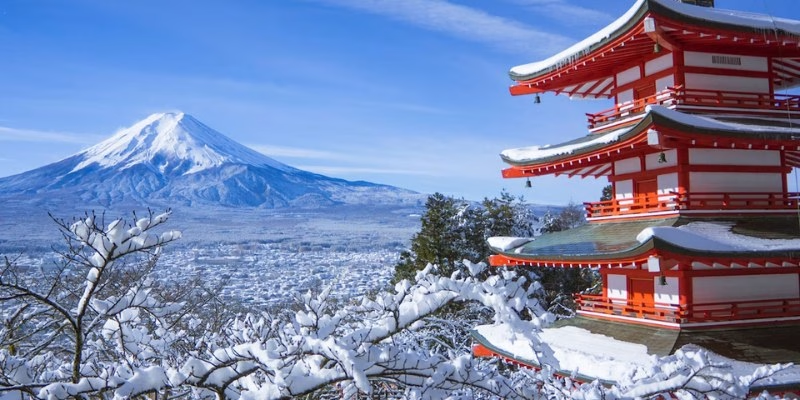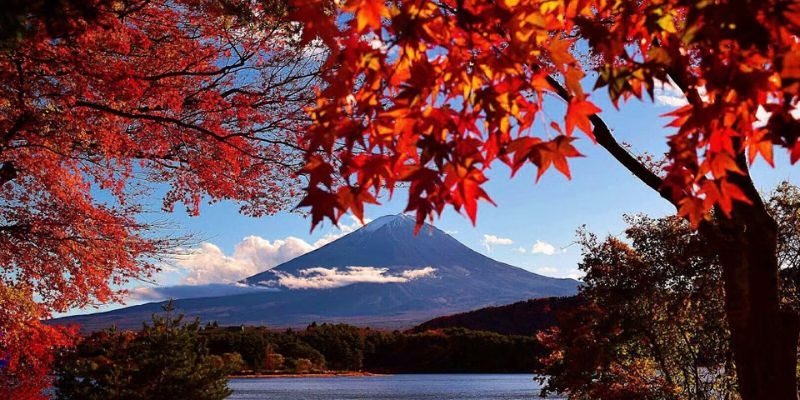How to Buy Property in Japan as Foreigner – Dreaming of owning a piece of Japan? Whether you’re captivated by Tokyo’s urban energy or drawn to Kyoto’s timeless charm, purchasing property in Japan as a foreigner is not only possible but also refreshingly straightforward. Unlike many countries with strict ownership rules, Japan grants international buyers the same rights as locals.
This guide will walk you through every step, from understanding legal requirements to navigating the closing process. By the end, you’ll have a clear, practical roadmap to turn your Japanese property dream into reality.
Is It Truly Possible for Foreigners to Purchase Property in Japan?
Absolutely, yes. Japan places no restrictions on foreign property ownership, meaning you have the same rights as Japanese nationals when it comes to buying real estate. You don’t need citizenship, permanent residency, or even a Japanese visa to purchase property.
This open approach has made Japan an attractive destination for international investors, particularly those seeking stable returns in one of Asia’s most developed markets. Whether you’re looking for a vacation home, investment property, or planning to relocate, the process remains accessible and transparent.

A Guide to Your Property Rights and Duties
Clarifying Property Ownership Rights for Foreigners
As a foreign buyer, you enjoy complete ownership rights once you purchase Japanese property. This includes the right to sell, rent, renovate, or pass the property to your heirs. The only exception involves certain agricultural land, which requires special permits regardless of nationality.
Your ownership is protected under Japanese law through a robust registration system. Once registered, your property rights are legally secure and backed by one of the world’s most stable legal frameworks.

Essential Documents You’ll Need
Preparing the necessary paperwork in advance can make the buying process much smoother and faster. Below is a checklist of what you should have ready.
Primary Identification:
- Current valid passport
- Residence card (for individuals residing in Japan)
- Proof of address issued by your home country

Financial Records:
- Statements showing bank account activity for the last three months
- Latest tax return documents or income verification slips
- Credit history report issued in your home country
- Confirmation of funds available for the initial payment

Japan-Specific Documentation Requirements:
- Hanko (personal seal) registration if residing in Japan
- Statements from your account at a Japanese bank
- Guarantor information (sometimes required for mortgages)
Most documents need official translations into Japanese, so factor this into your timeline and budget.

Real Estate Categories Open to Foreign Ownership
Residential Properties
Condominiums (Called “Mansions” in Japan): These modern apartments dominate urban areas and offer the easiest entry point for foreign buyers. Management companies handle maintenance, making them ideal for absentee owners or first-time buyers.
Single-Family Houses: Traditional houses offer more space and privacy but require hands-on maintenance. They’re particularly attractive in suburban areas where land prices remain reasonable.
Investment Apartments: Small studio and one-bedroom units generate steady rental income, especially near universities or business districts. These properties often provide the best rental yields for international investors.

Commercial Options
Office buildings, retail spaces, and mixed-use developments are available to foreign buyers with sufficient capital. These typically require larger investments but can offer substantial returns in prime locations.
A Clear Path to Ownership
Phase 1: Property Search and Selection
Start your search using Japanese real estate websites like SUUMO, Athome, or international platforms that specialize in Japanese properties. Many sites now offer English interfaces, making browsing much easier than in the past.
Working with a bilingual real estate agent who understands foreign buyer needs can save you significant time and prevent costly mistakes. They’ll help you navigate local market conditions, negotiate prices, and understand property histories.
Location research is crucial. Consider factors like proximity to stations, local amenities, future development plans, and natural disaster risks. Each area has its own characteristics that affect both livability and investment potential.
Phase 2: Making Your Offer
Once you’ve found your ideal property, it’s time to make an offer. Japanese real estate transactions typically involve several key steps:
- Initial Offer Submission: Your agent will present your offer along with basic financial information. Don’t be surprised if initial asking prices have room for negotiation, especially for older properties.
- Earnest Money Deposit (Tetsuke-kin): If your offer is accepted, you’ll pay a small deposit (usually 1-2% of the purchase price) to show serious intent. The funds are kept in escrow and credited toward your down payment when the purchase is finalized.
- Purchase Agreement: A preliminary contract outlines the terms, conditions, and timeline for your purchase. Take time to review this carefully with your agent or legal advisor.
Phase 3: Due Diligence and Inspections
This critical phase protects you from hidden problems and ensures you’re making a sound investment.
- Title Verification: Your legal team will verify clear ownership and check for any liens, encumbrances, or legal issues. Japan’s registration system makes this process relatively straightforward.
- Property Inspections: Professional inspections reveal structural issues, maintenance needs, or code violations. For older properties, this step is particularly important given Japan’s earthquake-resistant building standards.
- Financial Preparations: If you’re financing the purchase, now’s the time to finalize your mortgage application. Japanese banks typically require 20-30% down payments from foreign buyers.
Phase 4: Closing the Deal
The last stages tie all elements together:
- Contract Signing: The final purchase contract is signed by all parties. In Japan, this often involves multiple documents and careful attention to detail.
- Fund Transfer: Payment is typically made through bank transfer on the closing date. Ensure your funds are available and consider exchange rate implications if transferring from foreign accounts.
- Registration Transfer: Ownership is officially transferred through Japan’s registration system. Your legal representative will handle this process, ensuring your rights are properly recorded.

Financing Your Japanese Property Purchase
Japanese Bank Mortgages
Several Japanese banks offer mortgages to foreign buyers, though requirements are stricter than for locals:
Major Lenders for Foreigners:
- SMBC Trust Bank
- Shinsei Bank
- PRESTIA, previously known as Citibank Japan
- Some regional banks in major cities
Typical Requirements:
- Annual income requirement of approximately ¥3–4 million
- Stable employment history
- Japanese residence (though some banks work with non-residents)
- 20-30% down payment
For foreign buyers, interest rates generally start around 1.5-3.5%, depending on your profile and the lender.
Alternative Financing Options
Cash Purchases: Many foreign buyers opt for cash transactions, which simplify the process significantly and often provide negotiating leverage with sellers.
Foreign Bank Loans: Some international banks offer loans secured by Japanese property. This option may provide better terms if you have strong relationships with global financial institutions.
Private Lending: Specialized lenders focus on foreign property buyers, though interest rates are typically higher than traditional banks.
Taxes and Continuing Ownership Expenses
Purchase-Related Taxes
Registration Tax: Typically 0.4-2% of the property value, depending on property type and age.
Stamp Duty: A small tax on the purchase contract, usually under ¥100,000.
Real Estate Acquisition Tax: A one-time prefectural tax of 3-4% of the assessed value, though various exemptions may apply.
Annual Obligations
Property Taxes: Local governments levy annual property taxes based on assessed values. Rates vary by location but typically range from 0.1-0.3% of property value.
Income Tax on Rental Income: If you rent out your property, you’ll owe Japanese income tax on the rental income, minus allowable expenses.
Maintenance and Management: Budget for ongoing costs including property management fees, building maintenance, insurance, and repairs.
Tackling Language Obstacles and Bridging Cultural Gaps
Working with the Right Team
Building a strong support network makes your purchase smoother and more successful:
Bilingual Real Estate Agents: Look for agents who specialize in foreign clients and understand international buyer needs.
Legal and Tax Advisors: Japanese property law has unique aspects that warrant professional guidance, especially for tax planning.
Property Management Companies: Essential if you’re buying investment property or won’t be living in Japan full-time.
How to Approach Japanese Business Customs with Confidence
Japanese real estate transactions emphasize relationship-building, attention to detail, and patience. Rushing the process or pressuring for quick decisions often backfires. Instead, focus on building trust with your team and showing respect for local customs.
Key Market Considerations
Depreciation vs. Appreciation Trends
Japanese property markets behave differently from many Western countries. Buildings typically depreciate over time, while land may hold or increase in value. This affects both purchase decisions and tax planning strategies.
Urban areas like Tokyo and Osaka have seen renewed appreciation in recent years, driven by tourism, international investment, and urban renewal projects.
Natural Disaster Preparedness
Japan’s earthquake and tsunami risks are real considerations. Modern buildings meet strict seismic standards, but older properties may need retrofitting. Consider location-specific risks and ensure adequate insurance coverage.
Rental Market Dynamics
If you’re buying for investment, understand local rental markets. Tourist areas may offer higher short-term rental yields, while residential areas provide more stable long-term tenants.
Common Pitfalls to Avoid
- Rushing Your Decision: Take time to understand the local market and compare multiple properties before committing.
- Underestimating Total Costs: Factor in all taxes, fees, and ongoing expenses when calculating your investment returns.
- Ignoring Local Market Conditions: Each area has unique characteristics that affect property values and rental potential.
- Inadequate Professional Support: Don’t try to navigate the process alone. Invest in quality legal, tax, and real estate professionals.
Your Timeline to Property Ownership
Most foreign property purchases in Japan take 2-4 months from initial offer to closing, assuming financing isn’t required. Cash purchases can close much faster, sometimes within 4-6 weeks.
Key milestones include:
- Finding and choosing a property: approximately 2–8 weeks
- Offer acceptance and due diligence: 2-4 weeks
- Mortgage approval (if needed): 4-8 weeks
- Finalizing the purchase and completing registration: about 1–2 weeks
Making Your Japanese Property Dream Reality
Buying property in Japan as a foreigner is not only possible but increasingly common. The country’s stable economy, transparent legal system, and welcoming approach to foreign investment create an attractive environment for international buyers.
Success comes down to proper preparation, working with experienced professionals, and understanding local market conditions. Take your time, do your research, and don’t hesitate to ask questions throughout the process.
Whether you’re seeking a Tokyo apartment, a traditional house in Kyoto, or an investment property in Osaka, Japan offers opportunities for every budget and goal. With the right approach and support team, you’ll soon be holding the keys to your own piece of Japan.
Prepared to begin your property hunt? Begin by researching areas that interest you, connecting with bilingual real estate professionals, and preparing your documentation. Your Japanese property adventure awaits.

Begin Your Life in Japan with Ease – Arealty
For many newcomers, finding a place to rent in Japan can feel like a real challenge. Complicated contracts, guarantor rules, and language differences often create extra stress. This highlights the importance of partnering with someone trustworthy.
Why Arealty?
Arealty is dedicated to supporting international residents, making the rental journey smooth and stress-free. Here’s what sets them apart:
- Multilingual support – Friendly staff who speak English, Japanese, and Vietnamese.
- Proven expertise – Deep knowledge of Japan’s housing market and the unique needs of foreigners.
- End-to-end service – From property search to contract signing and moving in, Arealty is with you all the way.
- Transparent process – Clear communication and a customer-first approach for hassle-free relocation.
With Arealty by your side, settling down in Japan becomes effortless. You can focus on your career or studies while they handle the housing details.
Hotline: 050-6864-9697
Website: https://arealty.jp
Conclusion
How to buy property in Japan as foreigner is not only possible but also a transparent and straightforward process. With thorough preparation, guidance from reputable professionals, and a solid understanding of the local market, you can confidently own a modern apartment in Tokyo, a traditional house in Kyoto, or an investment property in Osaka. By following the right steps and working with experienced experts, your dream of owning property in Japan can become a reality.






Leave a Reply